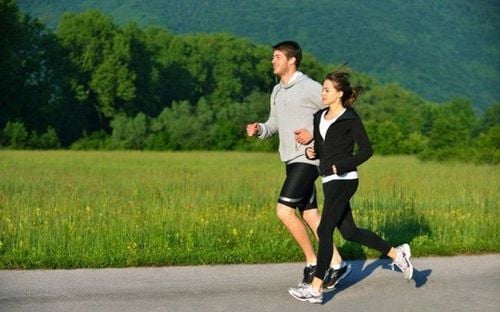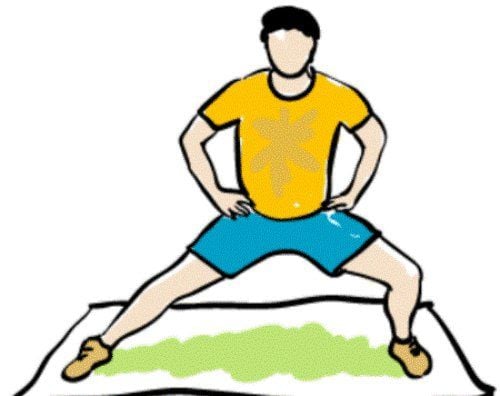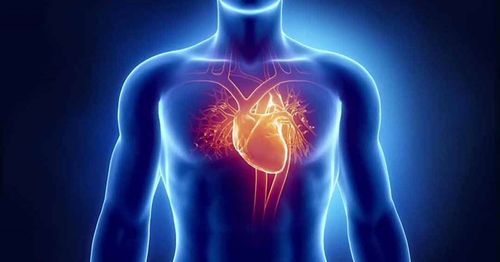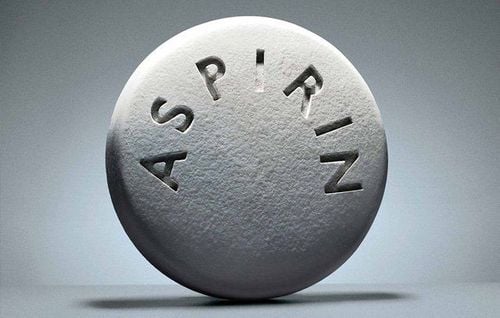This is an automatically translated article.
One of the most important ways people with heart failure can maintain their sense of well-being is to stay active. In the past, people with heart failure were advised to rest and give up many usual activities. But recent research has shown that being active, including exercise, work and sex... is healthy and safe for most people with heart failure.
Can I do physical activity if I have heart failure?
Activity can help you feel better, can relieve your symptoms, and can improve your heart function. By staying active, you can do more of the things you enjoy. Even if you've never been active and aren't very confident in your physical abilities, you can gradually take steps to become more active. However, be sure to talk to your doctor before starting an exercise program or increasing your activity level. Cardiac rehabilitation is a program available at many healthcare centers: they help you exercise safely, through regular monitoring of your condition and training you to maintain a healthy lifestyle for heart.
What do I need to do to be active during heart failure?

Chìa khóa để trở nên tích cực hơn là thực hiện từ từ và dần dần
The key to becoming more active is to do it slowly and gradually. This is especially important if you are inactive or if you have stopped being active because of an illness.
To get started, choose a simple exercise that you enjoy. For example: Walk, ride a bike, even use the machine at the gym. To become more active, it is best to start again doing activities or hobbies that you may have already practiced. For example, biking, swimming, gardening, bowling, or any other activity you enjoy that gets you moving. Whatever you plan to do, combine it with walking. Hiking is a good option for many people because it's easy to get started, doesn't require any special equipment, and can be done year-round and almost anywhere.
If you are going to start a more intense exercise program to become stronger, or if you have more symptoms while exercising, consult your doctor immediately. They will probably do you a stress test before you start such a program. This can be as simple as walking on a treadmill under the supervision of doctors and machines.
You can start to be more active in a supervised environment with certain conditions:
When you or your doctor have some doubts about your abilities. If you really don't have enough strength If you often have symptoms such as shortness of breath or fatigue even when you are lightly active or resting. You need to discuss this decision, or any concerns you have, with your healthcare provider. Usually, your healthcare provider can come up with a safe activity plan.
To make it easier to continue exercising, in addition to outdoor activities, try to find a place where you can work out indoors like your local gym or fitness center. That way, you can still exercise when it's too hot or cold or when it's raining.
Find out if the gym or fitness center has an indoor walk, pool or stationary bike that you can use. Or arrange to walk at a nearby mall. Outdoor walks are also great when the weather is pleasant. The goal for most people with heart failure is to get at least 30 minutes of activity each day most days of the week. This doesn't mean you have to be active for 30 minutes in a row, if that makes it difficult for you. For example, you could exercise 3 times for 10 minutes to reach your 30-minute goal. Whatever activity you choose, remember to start slowly. Move at a pace that suits you. You can start being active with just 5 minutes a day of walking. This may not seem like much, but it is a good start. It is imperative to listen to your body. The goal is to increase your activity slowly over time. Doing it quickly may be unsafe or may lead to frustration. With time and patience, you will be amazed at what you will be able to do after a while.
If walking seems too much for you to start, talk to your healthcare provider. They can talk to you about starting with leg or arm exercises in a sitting position.
See also: Never ignore these 9 signs of heart failure
Warm up and relax
It's important to take a few minutes to warm up before and relax after each workout to avoid hurting yourself and stressing your heart. Warming up helps your body and heart adjust to the increased need for movement. It also stretches tendons and muscles to avoid cramps. Post-workout relaxation allows your heart rate, blood pressure, and other body functions to return to normal resting levels and gradually lower your adrenaline levels. Most exercise problems occur if you stop exercising suddenly and don't take the time to slow down slowly and properly.
Warm-up Take a 5-minute warm-up before you begin an exercise program. One of the best warm-up exercises is to do the one you plan to do very slowly (i.e., if you're going to walk, walk slowly for the first 5 minutes; if you're going to ride a bike, pedal slowly without walking). no resistance first 5 minutes).
Post-workout relaxation The best way to relax is to slowly reduce the intensity of the activity or exercise you're doing. For example, if you're walking, walk slowly for the last few minutes of your exercise session. Never stop exercising suddenly and just sit, lie down, or stand still, unless you feel you have to. It can make you feel dizzy or lightheaded. End your program by doing about 5 minutes of stretching exercises.
Strength training or building muscle People often think that only young and healthy athletes do strength training to build muscle. But now we know that everyone can be strong. If you build muscle, you may have more strength to do your usual activities. For example, it may be easier for you to brush your teeth or comb your hair or do other activities that require you to put your arms around your head. The safest way for people with heart failure who want to build arm muscles is to do stretching exercises using large elastic bands.
Other tips and guidelines for training

Luôn khởi động trước và thư giãn sau tập
When you plan to exercise regularly, consider the following:
Have walking shoes that fit comfortably and have good soles. Wait an hour after a snack to exercise. Do not exercise on an empty or full stomach. Avoid outdoor activities or exercise when it is too cold or too hot or on high foggy days. Always warm up first and relax after exercise Start every exercise at a slow, steady pace. Don't hold your breath while walking, exercising, or doing any physical activity. Exercise or do your chosen activity at the time of day when you feel most energetic. For most heart failure patients it's morning. The day after you are more active, you may feel more tired than usual. Although this is common, you must consult your physician if this fatigue persists for more than a day. Consider being positive with your partner. Studies have shown that people stick with their workout and enjoy it more when they have a partner. Make sure you can keep talking while you're practicing. If you can't keep talking, you're working too hard and need to slow down. See also: Heart failure surgery
When can't I be more active?
While regular exercise is good, you shouldn't be more active at certain times. Do not exercise or increase your activities when you:
Short of breath at rest or have more symptoms than usual. Feeling exhausted. Have a fever, infection, or feel sick. Chest pain. Are going through a major change in your medication regimen. Persistent muscle soreness or pain in the part of your body you're exercising.
What is Overexertion?
During activity, it is advisable to watch for signs of overexertion that may be due to your heart condition. Signs of overexertion include:
Shortness of breath that makes it impossible for you to finish a sentence. Shortness of breath that doesn't go away when you reduce or stop being active. Dizziness or lightheadedness. Chest pain or tightness. Pain in the arm, shoulder, neck, or jaw. Irregular heartbeat (pulse). Unusual fatigue or extreme fatigue. Sweating. Nausea, vomiting. If you have any of these symptoms while exercising, slow down. If symptoms do not improve, stop the activity. Call 911 if chest pain or other symptoms do not improve.

Khó thở khiến bạn không thể nói hết một câu
Can I practice what I like?
As you become more active, you will find that you have more energy for home activities, hobbies and other forms of entertainment. While staying active is good, you still find it hard to do as much as you used to. The following tips can help you do more:
Allow time for rest during the day. Don't wait until you're exhausted before resting. Alternate rest with activity, so you can get more done. Use slow and gentle exercise. Rushing increases fatigue and irritability. Avoid activities that require a quick discharge of energy. Use good posture. Avoid activities when it is too hot or too cold or right after a meal. If there's an activity you want to do on a certain day, plan ahead and schedule it for a time when you usually feel best. Most people feel more energetic in the morning, but others feel best in the afternoon. Listen to your body to figure out when to do an activity it needs to.
Can I Work?
There's no reason to stop working just because you've been diagnosed with heart failure. In fact, working out can help reduce feelings of loneliness and depression. It can also improve your finances. At first, you may feel that you cannot work, especially if you have many symptoms or have been hospitalized. So it may be a good idea to avoid making long-term decisions about work until your treatment is optimized and you feel better. You may have to slowly increase the number of hours you work to help your body adapt, especially if you have a physically demanding job, or if you've been off work for a while. It may also be necessary to switch your job, so that you can return to work smoothly.
If you have a job where you sit mainly then you will probably be able to return to work easily. But if you have a job that requires physical labor, you may need to switch to a less strenuous one. Likewise, if your job requires stress, you may have to find a way to reduce stress. If you are unable to return to your regular job, you can consult with your employer to see if you can work part-time or light work. Each person is completely different. But use the following guidelines to help make decisions about work:
Defer returning to work until your symptoms have stabilized and your treatment regimen has been optimally adjusted . Increase your endurance by optimizing your work. From there, you will have more energy to do your work. If you've had to limit your activities because of heart failure, consider returning to part-time work. You should also talk to your doctor about returning to work. They'll probably have you do a stress test commensurate with your workload to see if you can do it. Many people with heart failure can continue to work while some will not be able to.
People with advanced heart failure, such as those with symptoms at rest or minimal exertion, are often unable to work and may qualify for disabling rest. If you are unable to return to work, ask your healthcare provider or social security officer about the extent and duration of the loss. You may be eligible for benefits through your employer or Social Security.
See also: Nutrition guide in heart failure
Can I Get Sexual Activity?

Hoạt động tình dục không nguy hiểm cho trái tim của bạn
Many people with heart failure wonder if they can still have sex. The answer is yes. Sexual activity is not dangerous for your heart. While sex may not be as easy as it used to be, it can still be encouraging. Just like with any other activity, you shouldn't have sex if you feel very tired, have a hard time breathing, or have chest pain. To increase sexual enjoyment, try the following:
Talk openly with your partner about each of your sexual needs and concerns.
Choose a time to have sex when you feel relaxed, comfortable and not under pressure. Avoid having sex after a heavy meal or drinking alcohol. Have sex in a comfortable room that's not too hot or too cold. Use foreplay to help your heart get used to the increased level of sexual activity. Avoid positions where you have to use your arms to lift your weight Have sex in less strenuous positions like lying under or with you and your partner lying side by side. If intercourse is difficult for you, try to find other ways to stay close and intimate with your partner. For example, consider:
Find another way to show affection. Try other forms of mutual arousal beyond intercourse. Increase affection and non-sexual communication with sexual partners. Also, keep in mind that people with heart failure may have sexual problems including decreased sex drive, problems with ejaculation, impotence, or an inability to orgasm. If you're having sex problems, don't hesitate to talk to your doctor. Usually your doctor won't talk about sex, but you should consult them whenever you feel the need.
Heart failure examination package at Vinmec International General Hospital is an effective measure to help you and your loved ones detect the risk of disease early, so that doctors can advise on a suitable treatment plan for your condition. health to protect a healthy heart.
Please dial HOTLINE for more information or register for an appointment HERE. Download MyVinmec app to make appointments faster and to manage your bookings easily.













